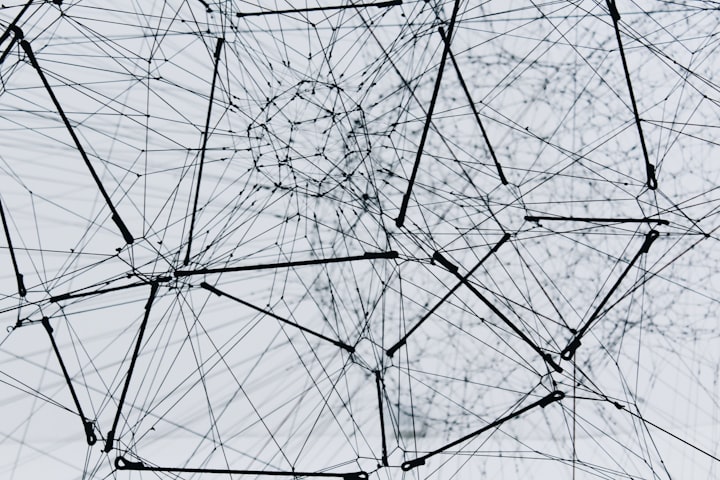
With 1 in 4 adults financially vulnerable thanks to the pandemic - and record numbers of people leaving their traditional 9-5 jobs - some of us need to be penny-pinchers for our own good, right now.
40% of the working population in this country (the UK) have less than £100 in savings; they're one accident away from dropping into food scarcity or homelessness.
Keeping track of what we spend is a largely psychological phenomenon, and online gurus have long touted the importance of a goal-driven saving mentality. For good reason: our own determination and discipline force us to think twice about what we spend, and where.
However, that's getting harder and harder.
In today’s context of unrelenting marketing - where we see over 5,000 ads per day - sometimes it feels downright impossible to keep the money in your bank account. If this is something you've been working on - I'm proud of you!
However, it's vital to understand the forces that work against us; there's billions of dollars poured into how you can be persuaded to spend more. Businesses and banks actively profit off your own financial mismanagement.
How are companies getting us to part with our money easier than ever? Isn’t it our own fault?
One slice of this that I'd like to focus on now is the final step: payment. Let’s go on a journey from the original great payment debate, all the way up to the current day's contactless cash-cow.
Take a trip back to a grocery shop, in 1998. The Carey Morewedge Study is occurring just outside that exit - where thoroughly bored-looking assistants ask to have a look at peoples’ receipts.
This quaint study found a seismic shift in consumer spending habits, however: an abyss in what - and how - people were spending. Those who paid with cash spent significantly less ($6.65) than those who paid with a card ($11.08).
Another study, soon thereafter, found that credit card users were prepared to pay almost twice as much for sports tickets than their cash-handed counterparts.
If we look at both studies, then, we see that no matter the purchase - as 'frivolous' as sports tickets or as necessary as buying food - those with a card consistently spent almost double.
Economics had previously seen purchases in a purely rational light. It is only logical that a consumer, wishing to get the most 'product' for his pound, would choose a cheaper item over a more expensive one.
So, the budding field of economic behaviourism set out to find precisely why 1990s families were paying more with card than cash.
Turns out, one vital element that the economists had been missing was the 'pain of purchase'. Ever parted with money for something fantastic, that you really wanted - then felt a little sour?
The pain of payment is our brains' reaction to the negative emotion induced by paying money.
Usually, the human brain is loss averse; Prelec & Loewenstein, in 1998, found that pain plays a vital part on consumer self-regulation, helping to keep spending in check.
This self-regulation - stopping yourself before you make that decision - comes from considering the prospect of that pain, then deciding it's not worth it.
So, from this initial discovery around behavioural discrepancies, came a wealth of understanding around the psychology of cash vs card. Most ideas around the 'why' focus on the physical nature of cash (vs. the incorporeal nature of a card). However, I want to posit a slightly newer stance on this debate: it's about time.
No, really: this self-regulatory power hinges on the crucial ability for you and I to look ahead, and consider the pain facing that purchase.
Therefore, having enough time to make a decision is absolutely crucial to this self-regulation. It's why the age-old budgeting advice of 'sleep on it' is so potent; and why salespeople (myself included) will always push for an earlier close.
The so-called convenience of card was posited as a major selling point over cash - say goodbye to hanging around an ATM, counting out the notes, or fiddling around with change!
However, what we started to lose to this convenience was a little bit of impulse control. We no longer had to physically count out the money and hand it over; four button presses and we're done and dusted.
Brands loved this; sure, it was safer than keeping cash on-site, but they were also seeing far lower rates of abandoned purchases. For the first time in human history, the last touchpoint had been substantially minimised to a swipe and some button-presses.
And then along came contactless.
In 2020, nine out of ten UK card payments were contactless. Your phone - on-hand all day every day - can aid in your impulsive financial decisions with Android, Google and Apple Pay.
The dominance of buy-now buttons is sickening: not even needing to open another chrome tab is a massive risk to one's own financial behaviour.
A recent study by mastercard (2019) found that contactless-connected bank accounts spend 30% more than those who stick with a traditional card.
So, not only have we seen incredible increases in impulsive spending thanks to contactless payment methods, but the economy - sensing this goldmine of potential behavioural exploitation - continues to double down.
Contactless recently increased its spending limit to £100. Previously, contactless had been overwhelmingly used for smaller purchases.
What's the fuss?
If you were to browse through the website of a company selling package holidays, the constant claims around the importance of travel insurance would imply that travel insurance is nigh-on essential for flying.
This deliberate, economic implication is what behavioural scientists call information leakage. For contactless, the limit raise had the (fully intended!) side-effect of declaring ‘this payment method is no longer just for small purchases’. And so far, it’s working.
From £10 to £15 to £43 to £100 - Apple and android pay have no limit at all - the tech-driven push for constant; more; quicker purchases is a danger to all of our own financial well-being.
It creates an increasingly hostile environment to those of us not willing to part with our cash for purely impulsive purchases; and, best of all, banks and businesses can just blame the growing debt on the increasingly spend-happy consumer.
About the Creator
Rk.ke
Follow the Omnishambles






Comments
There are no comments for this story
Be the first to respond and start the conversation.